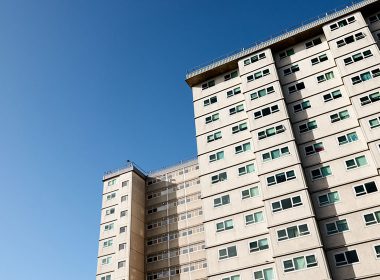Snapshot
- If a lease is terminated for non-payment of rent, the Court will be inclined to grant relief against forfeiture and once the lease is reinstated, if eligible, the tenant can request the landlord renegotiate the rent and other terms, pursuant to the COVID-19 Regulations.
- The ‘COVID-19 pandemic period’ commenced on 1 April 2020 (despite the fact that the Regulations came into force on 24 April 2020).
- Reductions in rent apply based on the reduction in the tenant’s trade during the ‘COVID-19 pandemic period’ and a ‘subsequent reasonable recovery period’ (being no less than six months in this case).
- For impacted tenants, landlords are prevented from taking action at a later date for failure to pay rent, outgoings, or to trade, where the breach occurred during the prescribed period (24 April 2020 to 24 October 2020).
- NOTE: Since this article was first published in print, the NSW Treasurer announced that the Regulation has been extended to 31 December 2020. For more information, please see the short author update at the conclusion of this article.
On 7 April 2020, the National Cabinet adopted the National Cabinet Mandatory Code of Conduct: SME Commercial Leasing Principles during COVID-19 (the ‘Code’). The purpose of the Code is to impose ‘a set of good faith leasing principles for application to commercial tenancies’ between landlords and eligible tenants (i.e. those who are eligible businesses under the Federal Government’s JobKeeper program). The Retail and Other Commercial Leases (COVID-19) Regulation 2020 (the ‘Regulations’), gives effect to the Code in New South Wales.
For the first time, in Sneakerboy v Georges Properties Pty Limited [2020] NSWSC 996 (‘Sneakerboy 1’) and then in Sneakerboy v Georges Properties Pty Limited (No 2) [2020] NSWSC 1141 (‘Sneakerboy 2’), the Supreme Court of NSW has provided guidance on the implementation of the Code and the Regulations.
The facts in Sneakerboy 1
The tenant, Sneakerboy Retail Pty. Limited (‘Sneakerboy’), entered into a 10-year lease from Georges Properties Pty Limited (the ‘landlord’) of premises in York Street, Sydney, for the sale of luxury sneakers and streetwear. Sneakerboy provided a bank guarantee of $253,668.90 which was the equivalent of 10 months’ rent plus GST (the ‘Bank Guarantee‘). Sneakerboy had a history of rental arrears. In February 2020, Sneakerboy noted a decline in sales due to COVID-19.
On 12 March 2020, Sneakerboy advised the landlord that ‘due to uncertainty and lack of trade’, it needed to pay the February rent in three parts over three weeks (at [22]). Sneakerboy defaulted. On 20 March 2020, mandatory restrictions required no more than one person could occupy 4m2 of space instore. On 25 March 2020, Sneakerboy removed stock and property from the premises. That same day, the landlord terminated the lease. In its notice, the landlord stated Sneakerboy was in arrears by $65,084.56 and had abandoned the premises and ‘evidenced an intention to no longer be bound by the terms of the Lease’ (at [33]). On 26 March 2020, the landlord cashed the Bank Guarantee (equivalent to 10 months’ rent + GST). On 7 April 2020, the National Cabinet introduced the Code. Sneakerboy enrolled in JobKeeper on 21 April 2020. On 24 April 2020, the Regulations came into force.
After being locked out, Sneakerboy sought relief against forfeiture. The Court noted that if relief was granted and the lease retrospectively continued from 25 March 2020, the Regulations would apply to it. The Code would be irrelevant if the tenant was not entitled to relief against forfeiture as the lease was terminated before the establishment of the COVID-19 regime.
Relief against forfeiture
The Court (at [75]) summarised the following principles relevant to the grant of relief against forfeiture:
- Where the lease is terminated for non-payment of rent, the Court will generally grant relief against forfeiture. This is because the power to terminate the lease by re-entry is generally regarded as security for the rent.
- Relief will generally only be granted on the condition that the tenant pay the outstanding rent and the landlord’s costs.
- The Court may require the tenant to reinstate the Bank Guarantee.
- The remedy is discretionary, not a right.
- The relief may be denied where relief is futile because the tenant is incapable of meeting rent payments in the future.
The Court determined that Sneakerboy was entitled to relief against forfeiture, finding it had not in fact abandoned the premises. Rather, it had ceased trading temporarily on account of the lockdown and moved stock/equipment to its warehouse for security reasons and so that it could sell stock online. Relief was determined due to the non-payment of rent. The Court took into account the significant Bank Guarantee. Up until 21 July 2020, the landlord would have still had $55,754.95 in hand, leaving aside outgoings. The granting of relief meant that the lease could be reinstated as of 25 March 2020 with the requirement that the parties renegotiate the rent obligations based on the Regulations.
Whilst the Court acknowledged to some degree the initial impact of COVID-19, this justification was diminished due to the history of rental delinquency. The Court did not need to consider that relief be conditional upon payment of outstanding rent as this had been dealt with by the landlord calling on the Bank Guarantee. Because of COVID-19, the delay in making the application did not preclude the grant of relief. The tenant was ordered to reinstate the Bank Guarantee but not immediately, due to adjustments with respect to the COVID-19 regime. The tenant was ordered to pay the landlord’s legal costs.
Sneakerboy 2
The matter came before the Court a second time in Sneakerboy v Georges Properties Pty Limited (No 2) [2020] NSWSC 1141 (‘Sneakerboy 2’) to determine the following: the timing of the replacement Bank Guarantee by Sneakerboy; the costs order that should be made in favour of the landlord; and whether the Court should make orders concerning the parties’ compliance with the COVID-19 regime.
The Court determined the following principles will apply in renegotiations about rent and other terms:
Leasing Principle 3 – The Code requires landlords to offer tenants proportionate reductions in rent payment in the form of waivers and deferrals of up to 100 per cent of the rent ordinarily payable, on a case by case basis, based on the reduction in the tenant’s trade during the COVID-19 pandemic period and a subsequent reasonable recovery period (The Code, Leasing Principle 3).
Sales from the entire business – In this case, the Court determined that generally ‘tenant’s trade’ refers to turnover from all locations (at [113]), not simply the sales from the premises. Justice Robb noted that this interpretation does ‘not in my view require the same answer’ in every case (at [112]). Sneakerboy argued it should not have to pay any rent for the period it was closed (due to the lock out) because ‘tenant’s trade’ referred to trade from the particular premises only. Thus in this case, the Court considered that there should be a notional 75 per cent reduction in rent, based on the reduction in Sneakerboy’s entire sales from its business.
Date from which the Code applies – The landlord argued that Sneakerboy was not entitled to any reduction in rent or outgoings for April 2020, as the Regulations did not come into force until the 24th of that month. The Court rejected this and said the Code applies for the ‘COVID-19 pandemic period’ which is defined by ‘the period during which the JobKeeper program is operational’. Jobkeeper commenced on 30 March 2020 so the Court said ‘this at least means that the COVID-19 pandemic period commenced on 1 April 2020’ (at [104]).
Six-month recovery period – Leasing Principle 3 applies not only during the Covid-19 pandemic period but also includes a ‘subsequent reasonable recovery period’. The landlord argued that it will be entitled to full rent from 1 November 2020 due to the expected repeal of the Regulations on 24 October 2020. The Court rejected this and accepted Sneakerboy’s submission that a reasonable recovery period should be ‘no less than six months’ (at [148]). The Court determined that the recovery period should end on 30 April 2021. Waivers and deferrals could apply during the subsequent reasonable recovery period (at [126]).
Renegotiations still in force after Regulations are repealed – The Court confirmed that any renegotiation of the rent and other terms under the lease which occur whilst the Regulations are in force (i.e. prior to 24 October 2020) will still take effect once the Regulations are repealed (at [127]) – these rights are not lost. It is unclear, however, what the status is in relation to matters where the renegotiation has not been completed.
Factors to be taken into account in the renegotiation – Both parties must have regard to the economic impact of the COVID-19 pandemic (which generally may extend beyond simply the Code) and the principles set out in the Code.
Leasing Principle 4 – Rental waivers must constitute not less than 50 per cent of the total reduction in rent (at [75]).
Leasing Principle 5 – Rental deferrals must be amortised over the balance of the lease or for a period of 24 months, whichever is the greater (at [76]).
Mediation – If the parties do not reach agreement as a result of the renegotiation process, the matter should be referred to mediation. Referencing in the Code to binding mediation does not mean that the mediator is to bind the parties, but means that the mediated settlement should be binding.
The Court considered the cash flow consequences that would flow from the renegotiation of the rent, and required the parties to respond in relation to the timing of the Bank Guarantee, in light of the guidelines set out in the judgment. The Court required Sneakerboy to pay about one third of the rent each month from 1 October 2020 to 1 March 2021. The Court directed the parties to attempt to renegotiate in good faith pursuant to the Regulations.
Practice tips:
- Parties should aim to conclude COVID-19 renegotiations of rent and other terms of the lease prior to 24 October 2020 when the Regulations may be repealed*.
- If the negotiation has stalled, immediately file for mediation with the Office of the Small Business Commissioner.
- Once the Regulations are no longer in force and there is no longer any restriction on termination, if the lease is terminated, apply for relief against forfeiture as soon as possible.
- Once the renegotiation is concluded, the tenant is obliged to pay the outstanding rent.
- The Court can, in granting relief, provide less onerous terms than those embodied in the lease (although this right is narrow).
Important author update:
Please note that shortly after this article went to print, the NSW Treasurer announced that the Retail and Other Commercial Leases (COVID-19) Regulation would be extended until 31 December 2020 by virtue of the Retail and Other Commercial Leases (COVID-19) Regulation (No 2) 2020.
The new Regulation applies to leases entered into before 24 April 2020 (unless the lease arose due to an exercise of option). A negotiation under the repealed Regulation that was commenced but not concluded before 24th October 2020, may be continued and concluded under the new Regulation.
For further information, please consult the new Regulation online.





